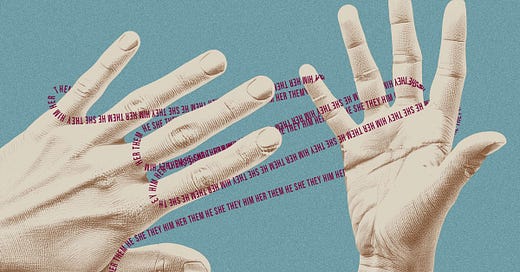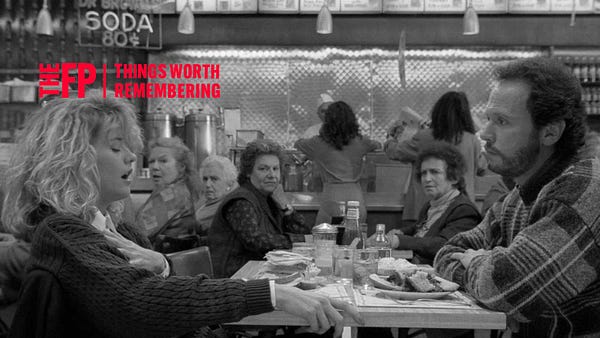
In case you haven’t heard, we’re hosting our very first live debate on Wednesday, September 13, in Los Angeles. The proposition: has the sexual revolution failed? (Get your tickets here.)
The sexual revolution is a topic we return to again and again at The Free Press. Combined with the internet, it has brought us several hundred dating and sex apps. It’s brought us camgirls and Pornhub and Ivy League sugar babies, and also, as Kat Rosenfield reveals below in this essay reprinted from UnHerd, a new group of female influencers who preach manipulation.
We know many of you won’t be able to make it to the debate (don’t worry, we’re going to record it). In the meantime, we hope you’ll join this discussion in the comments. —BW
“Men do not love you, okay? So stop thinking that they do. They tolerate you. They lust you. That’s it.”
The YouTube influencer SheRa Seven’s advice for young women is as sharp as the wings of her black eyeliner. To single ladies, she offers the following on sex: “The longer you hold off, the more that he will like you.” To married ones: “Don’t give it up every time he wants it. Make him wait, make him work for it still. Gotta make him chase!”
This chaste strategy, promoted by straight-talking female influencers with lush lips and eyelash extensions, is everywhere at the moment, proliferating under TikTok hashtags such as #feminineenergy and #lawofattraction. The women who swear by it have been compared with the pickup artist and alleged human trafficker Andrew Tate, which has provoked a whole host of articles explaining why this comparison is extremely wrong and offensive. But it’s easy to see how these women might serve as a sort of funhouse mirror to the manosphere pickup artists.
And yet, the advice pumped out by SheRa Seven and her kind appears to have much less in common with its contemporary male counterpart than it does with the self-help gurus of eras past. At least superficially. “Gotta make him chase” is just a reboot of “play hard to get”—a central tenet of one of 1995’s best-selling books, The Rules. Subtitled Time-Tested Secrets for Capturing the Heart of Mr. Right, it effectively schooled young single women in the art of entrapping—that is, enticing—a man. The rules number in the dozens, but they all circle the same fundamental thesis: that a woman must use her feminine wiles to stoke a man’s prey drive, just as hunters use fake rabbits on a string to train their hounds.
On this front, The Rules differs very little from the advice of contemporary dating influencers—or indeed the archaic courtship norms that ruled before the sexual revolution. And as with the YouTubers whose Cash App usernames are prominently displayed on their video content, then as now there was a certain amount of grift involved. A Time magazine article from 1996 announced: “The Rules is not just a book; it’s a movement. Around the country, Rules Girls are. . . paying $45 a pop to attend Rules seminars and forking over $250 an hour for phone consultations with authors Ellen Fein and Sherrie Schneider—neither of whom is a credentialed anything.”
Of course, the influencers would say that their own lives are credential enough. They are, after all, the patient-zero success story for the strategies they’re selling. In the nineties, the women who wrote The Rules held up their own successful marriages as proof that their method worked; today, in a YouTube video entitled “How to receive princess treatment” with one million views, TheWizardLiz says: “I want you to look at this video and think, whoa, if Liz expects this much from her partner, then maybe I can expect my partner to at least give me some respect.”
That this brand of self-help is having a resurgence right now is hardly surprising. The sexual revolution, whatever its benefits, also blew up virtually all the social structures and strictures that used to regulate romantic entanglements, leaving young people to navigate a lawless, chaotic landscape in which there’s no guarantee that the person you’re sleeping with even likes you, let alone intends to commit.














